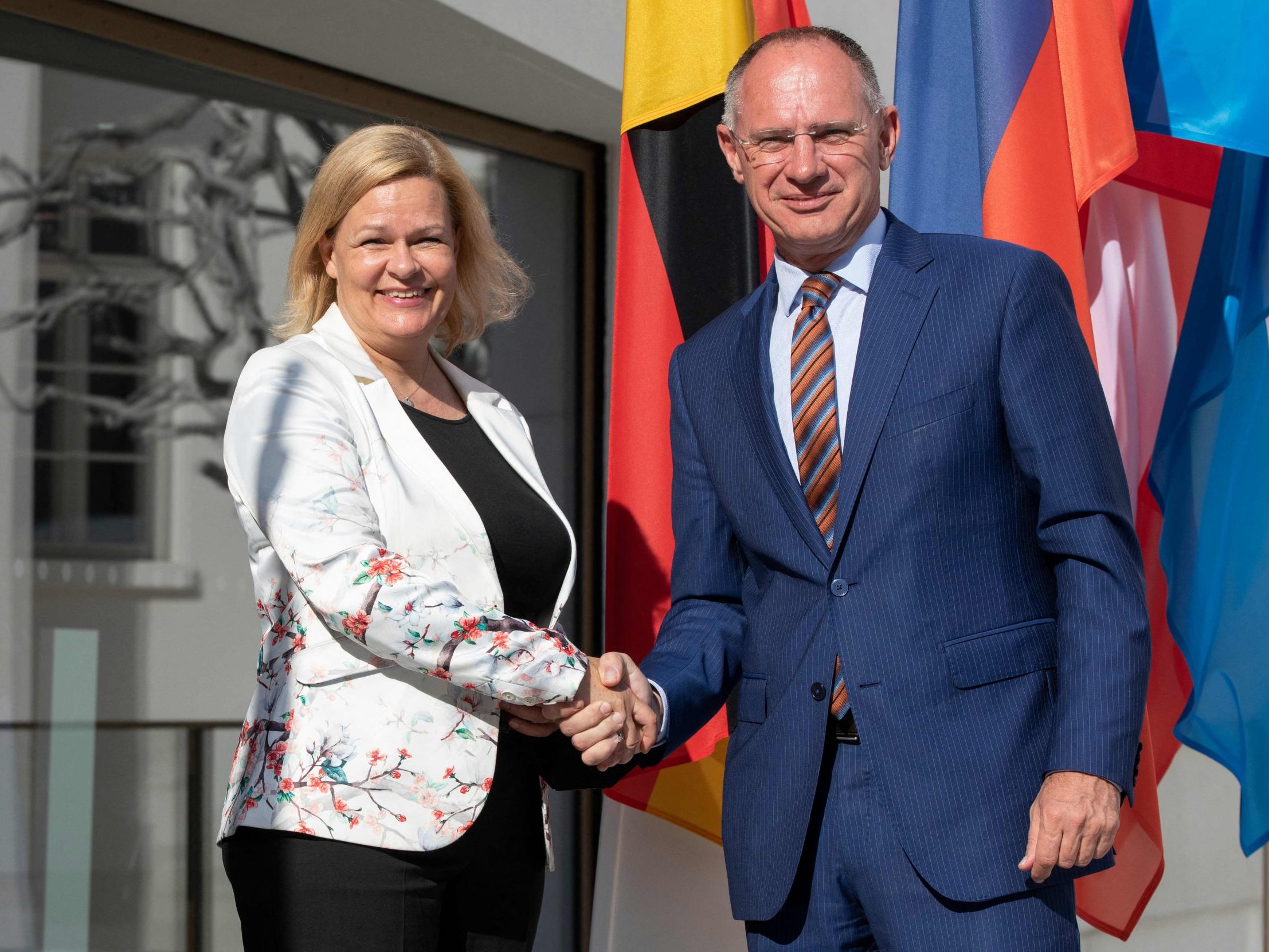Interior Minister Karner Arrives in Syria with German Counterpart Faeser

Interior Minister Gerhard Karner (ÖVP) arrived in Syria on Sunday for an unannounced visit together with his German counterpart Nancy Faeser. The meeting with Syrian Interior Minister Anas Khattab focused primarily on the security situation in Syria, the fight against terrorism, as well as the topics of voluntary return and forced deportations of criminals and threats to Syria, according to the Interior Ministry to the APA.
No Visits to Syria for a Long Time
This was the first visit by an Austrian government member to Syria in 15 years and the first meeting of two EU interior ministers with their new Syrian counterpart. "It was a more intense and longer conversation than expected," emphasized Karner afterwards. The Syrian Interior Minister described the situation as difficult, but it is more stable than often portrayed from the outside, said Karner. For example, the security apparatus needs to be restructured so that it can ensure the protection of citizens. The government's goal is to maintain the unity of the state, include all ethnic groups, and especially rebuild the infrastructure.
"We were able to agree on concrete implementation steps regarding the training of security forces as well as return and deportations. This is necessary because a credible, strict, and fair asylum system can only function if deportations are also carried out," assured Karner. In the area of return, Khattab promised cooperation according to the Interior Ministry. Further discussions are to be held at a technical level.
According to the Interior Ministry, Germany took in around half a million Syrians during the years of the civil war. "Many have found work in Germany (...) and built a new life - they should of course be able to stay." Others would "return to their homeland when the hope for peace becomes reality," explained Faeser. Nevertheless, it is important to "consult with the Syrian transitional government about security, stabilization, and return perspectives," the minister explained. "Our top priority is that criminals and Islamists are deported as quickly as possible."
Faeser expressed great satisfaction after the conversation. They discussed the security situation in Syria, "especially regarding the fight against IS," said the SPD politician. The Syrian minister also showed "that he is willing to issue passports and documents." This is a "step forward" with regard to deportations to Syria. Considering the past of the Interior Minister and other cabinet members, Faeser admitted that Syria is currently a difficult partner. Nevertheless, it is important "that we establish contacts at the working and technical level." Otherwise, we will not succeed with our own concerns: finding ways for increased voluntary return of Syrians and repatriation of criminals.
Strict Security Measures
The German-Austrian delegation flew to their unannounced visit accompanied by strict security measures from Cyprus to the Syrian capital. An alliance led by the Islamist group Hayat Tahrir al-Sham (HTS) had overthrown Syria's long-time ruler, Bashar al-Assad, in December after a lightning offensive. HTS leader Ahmed al-Sharaa was appointed as interim president, and Assad fled to Moscow.
Interior Minister Khattab, who received the delegation, has been in office only since March 29. Sharaa had appointed the members of the second interim government after the overthrow of Assad at the end of March. Khattab and Sharaa have known each other since the time when they jointly supported local groups of the terrorist network Al Qaeda in Iraq in the fight against US troops. After the conversation with Faeser, which lasted more than an hour, Khattab said: "We talked about energy and how to enable investments and create jobs. Because this will encourage Syrians who left the country during the war to return on a larger scale."
Karner and Colleagues in Krems
On Monday, Karner and Faeser will inform their colleagues from Switzerland, Luxembourg, and Liechtenstein about the meeting at the gathering of German-speaking interior ministers in Krems. This information is also to be shared with the other EU interior ministers, the Interior Ministry in Vienna further announced.
(APA/Red)
This article has been automatically translated, read the original article here.





